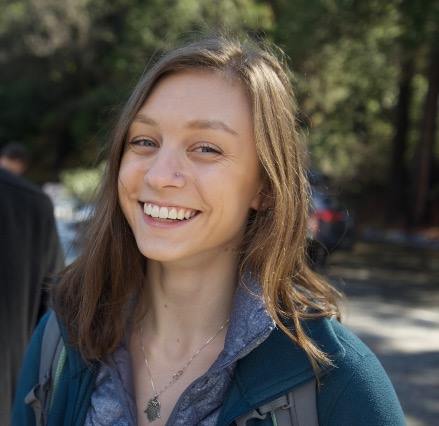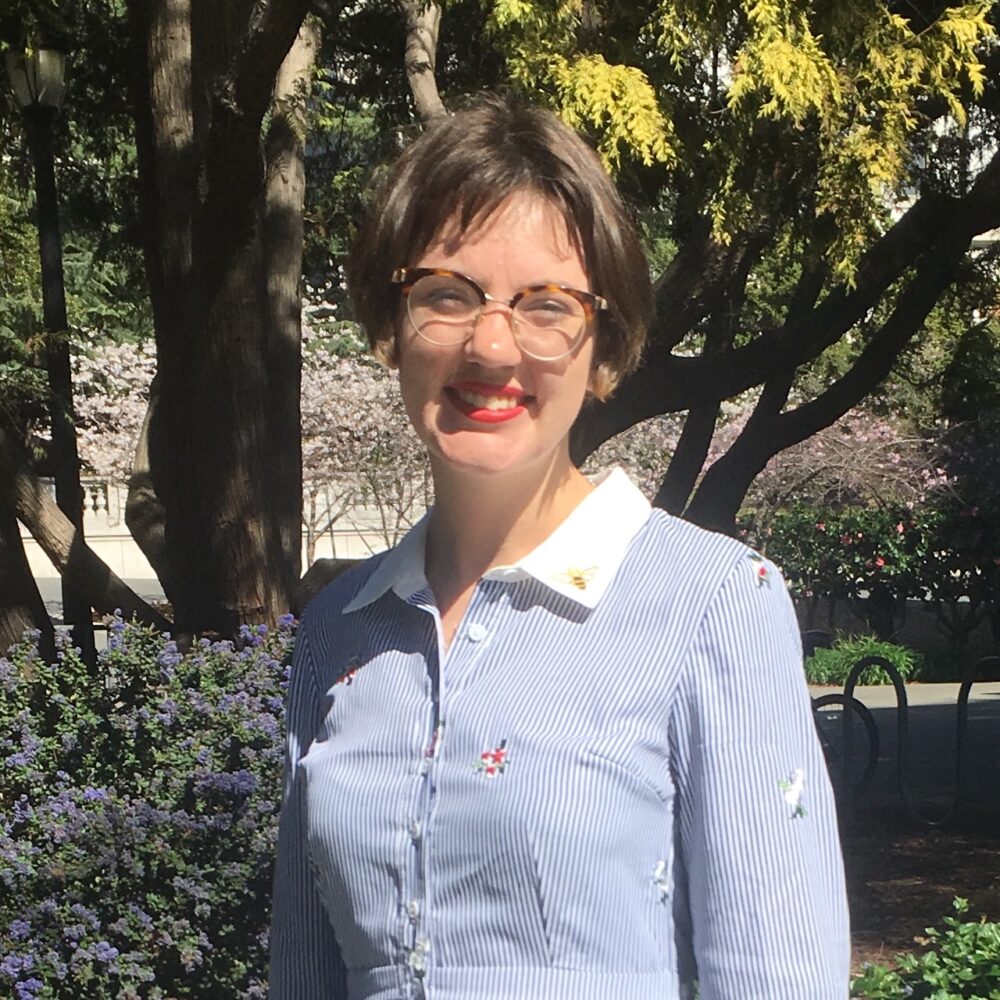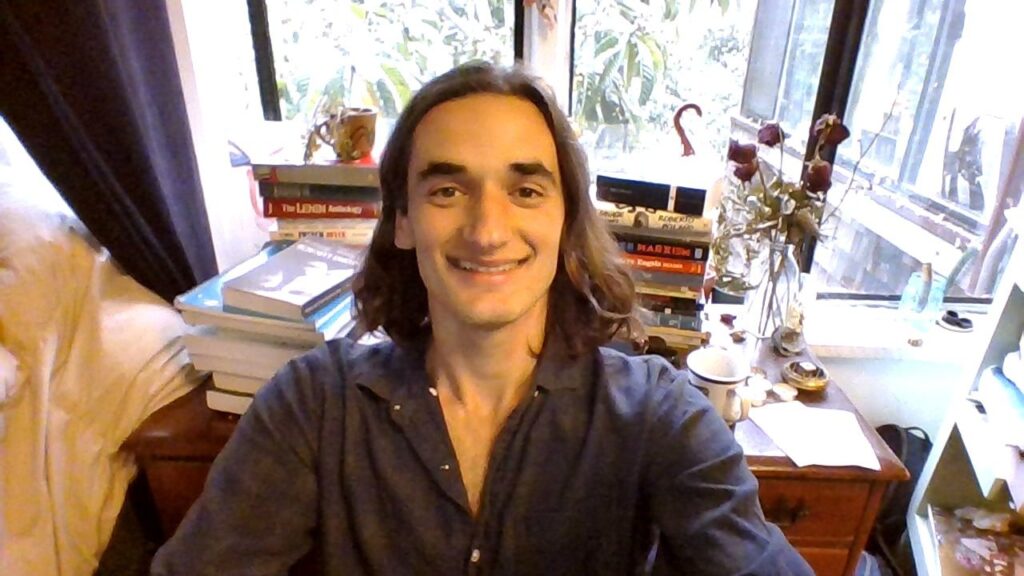Elena Martynova

Science is a synonym for analytical thought, rigor, meticulousness and rationality. However, some of the greatest scientific discoveries, inventions and even proofs relied on the complete opposite of that intuition. In mathematics, mother of all sciences, intuition is routine: there is no point in dedicating decades to proving a conjecture if one does not have an intuition that it is solvable. Existing research has approached intuition primarily through a linguistic lens; my research project will extend the reach of intuition to the domain of mathematical problem solving. More precisely, I […]
Sally Littlefield

My summer research seeks to understand how American culture conceives of adolescent female sexuality through analyzing popular film. Looking at American teen films from the 1980s, 1990s, and 2000s, I will explore when, how, and by whom it is considered acceptable or problematic for teenaged women to engage with their sexuality. Once I’ve conducted a thorough film analysis, I’ll be able to explore what effects these cultural beliefs have on teenaged girls through collecting oral histories of young women in the fall. My finished project will tie these two pieces […]
Nickolas Gable
The common imagination casts Medieval Europeans as victims of an era without skepticism in which the average person accepted superstition as fact. My research looks into the Early Medieval period in England and analyzes how various kinds of readers approached, questioned, and subsequently either accepted or refuted incredible claims. By looking at textual evidence within accounts of miracle as well as items of dubious canonicity, the intent is to expose and understand the multifaceted belief system of the Medieval Christian: one which allows for degrees of truth in miracle, doctrine, […]
Lucy Whitmore

With the incredible amount of information available in the world, humans have to form many different behavioral strategies in order to account for the variety of situations and information we could encounter. This makes the ability to flexibly adapt behavior to different contexts a critical component of human intelligence. For example, when we use computers, we know that Macs and PCs use different operating systems. We can apply what we now from using a Mac laptop to a Mac desktop, but we know we cant apply that same knowledge to […]
Taylor Follett

Upon first reading Ulysses by James Joyce, I developed a question: why does one of the most significant novels of the modernist canon, a literary movement associated with hyper-masculine authors, contain such a prominent focus on the feminine and end with a female narrator? Throughout Ulysses, Joyce investigates the trappings of normative gender, especially through Molly and Leopold Bloom. My research engages with this investigation and my original question, pursuing critical conversations surrounding Ulysses while also examining texts from queer theory and novelistic theory in order to interrogate the precise […]
Yvette Yi-Chi Wu

While languages like English use grammatical markers to signal plurality (like the -s in cat-s), languages like Chinese use separate words called classifiers. A classifier is a unit of measurement that allows the noun it describes to be countable, similar to saying three pieces of furniture instead of three furniture-s in English. Although Chinese has long been researched as a classifier language, most existing work has focused on Mandarin, overlooking the variations that exist among Chinese languages. By conducting research on variations in plurality among southern Chinese languages (including Cantonese, […]
Ian Stratford

My project explores the political implications of the religious aspects of The Eumenides by Aeschylus. The play was written circa 458 BC, a time of significant change for Athenian religious practice as democratization reached the cults of the city and control of religious rituals moved from old cultic families to civic oversight. The politician Kimon was able to orchestrate the foundation of a cult to the hero Theseus, and even established a cult family of the type that was now falling out of power. This exception speaks to the relationship […]
Elliot Lewis

In recent years, there has been a proliferation of speculation concerning the significance of new digital technologies on social relations, culture, and political economy. French philosopher and social theorist Bernard Stiegler is one of the more prominent of such New Media theorists, who aims at a philosophical transformation in our understanding of the technological mediation of social processes of individuation, production, and consumption. For my research, I am carrying out a critical study of Stieglers work, as it concentrates several pressing contemporary problematics within critical social theory into an exemplary […]
Alexander Reed

The years 31 BC AD 14 saw the Western world undergo a great revolution in culture, politics, state, and society as the regime of Caesar Augustus dismantled and replaced the centuries-old republican system of government at Rome with an imperial autocracy. In the provinces of the Roman empire, the very fabric of the city provided a key platform for the promotion of the Augustan program. However, recent reassessments of the period have begun to suggest that many of the changes in urban form during this era may instead have been […]
Peter Birghoffer

It is convenient to see the failure of the Comecon (Council for Mutual Economic Assistance), the economic union of Eastern Bloc countries, as a verdict on command economies. Central planning is commonly understood to have reduced the competitiveness of these countries to the point where they could no longer provide themselves with the resources required to maintain a viable economic portfolio. But the Comecons lack of success to keep up with the West cannot be ascribed to the shortcomings of central planning alone. In this project, I argue that a […]